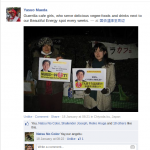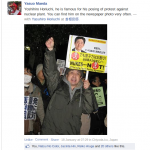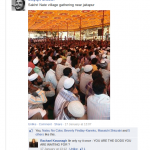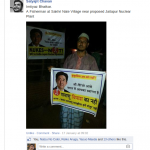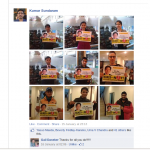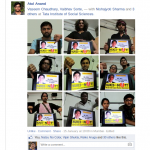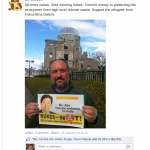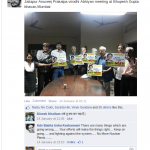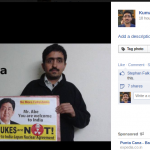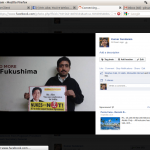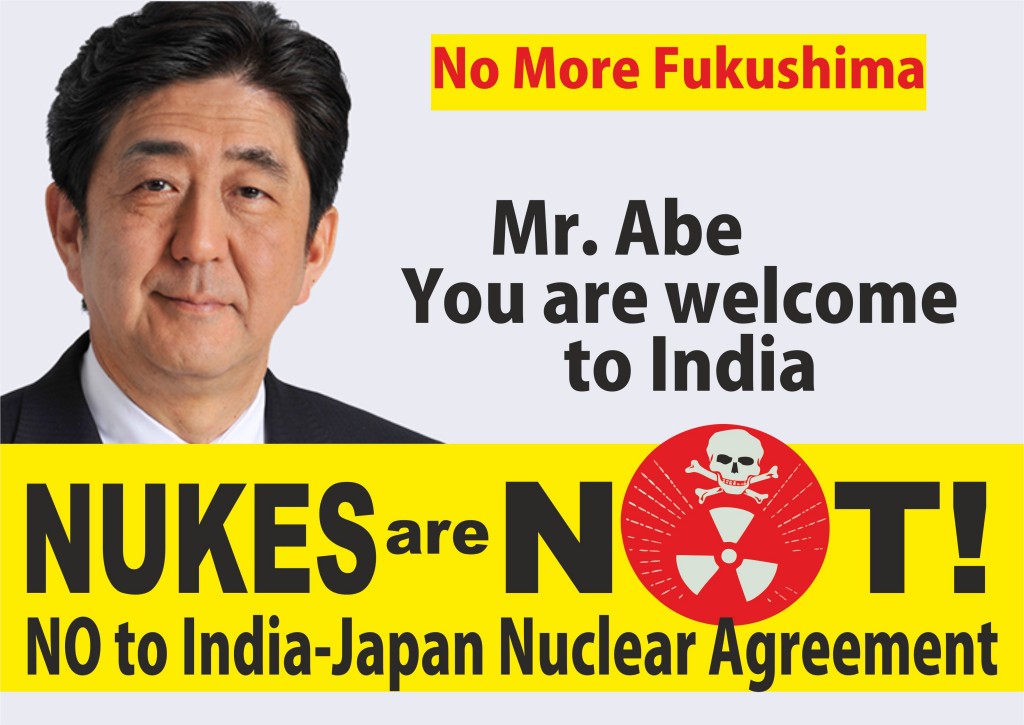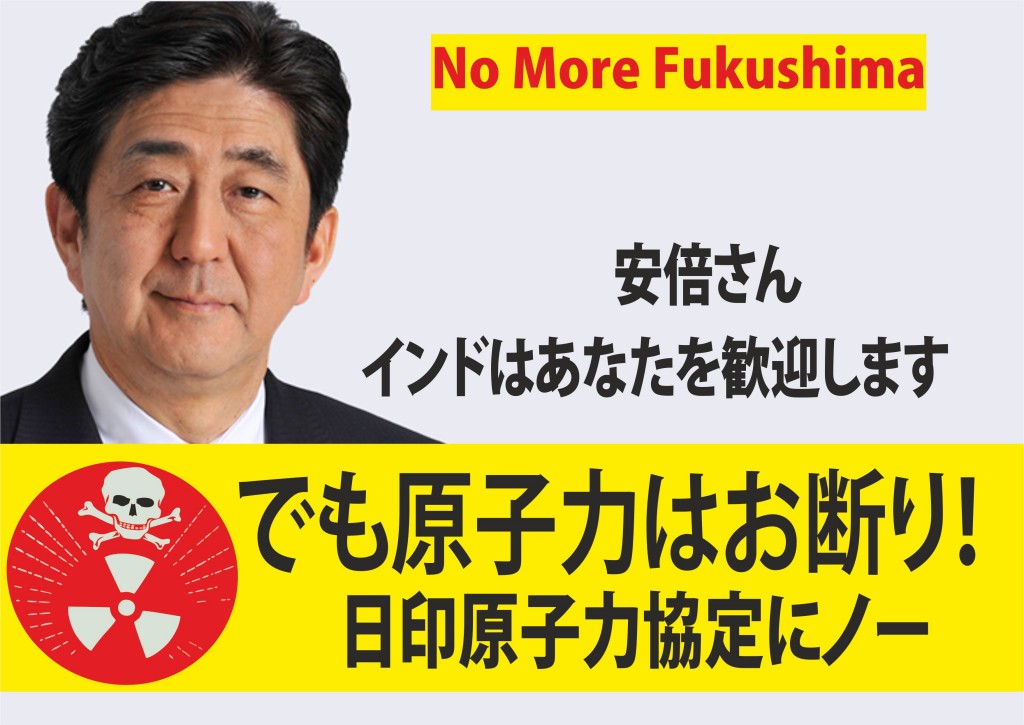A resounding NO to the India-Japan nuclear agreement emerges from all corners
From Japan to Jaitapur to Koodankulam, people say NO More Fukushima
Dear Friends,
The campaign launched by the Coalition for Disarmament and Peace(CNDP) against the India-Japan nuclear agreement, which has been in pipeline for several years and is likely to be culminated during the Japanese Prime Minister Mr. Shinzo Abe’s upcoming visit to New Delhi, has recieved extremely encouraging response from people all over the world, especially in India and Japan. For us, this support vindicates our firm belief that this nuclear agreement is anachronistic, absurd and unacceptable to people in Japan who are witnessing a still unfolding disaster in Japan, and people in India who are brutally silenced by their government indulging in nuclear expansion misadventure. It is heartening to see that this camaign has received solidarity from people across the world who realise the risks of nuclear energy in a post-Fukushima world.
Mr. Abe will be India’s chief guest during the Republic Day ceremony on 26th January 2014 and he will be in India during 25-27th January. To raise our voice during this period, we have given a call to people, urging to pose with a poster that says “NO More Fukushima / Mr. Abe, you are welcome to India, Nukes are Not / No to India-Japan Nuclear Agreement”. A large number of people have sent their self-portraits with the poster, translated into many Indian languages and also Japanese. Besides eminent Indians like Admiral L. Ramdas and Lalita Ramdas, renowned filmmaker Anand Patwardhan and Prof. Achin Vanaik, hundreds of individuals have sent their self-portraits. Fisherfold in Jaitapur, a site of strong grassroots movement against Areva’s proposed project for the world’s biggest nuclear power park, organised a meeting and have sent collective pictures. Similar individual and collective pictures have come from the Friday protests in Tokyo where Japanese citizens have been protesting at their PM’s residence every week. Such self-portraits with message of protest and slidarity are being recieved from Germany, US, France and several other countries.
These self-portraits, collected till 23rd January, would be used for a large collage and will be displayed prominently in various cities in India during Mr. Shinzo Abe’s visit. In India, the collage will be launched by children in Idinthakarai village in Koodankulam, where a massive peaceful movement against Koodankulam nuclear power plant has been underway after Fukushima, and has faced violent repression by the state in which 2 people were killed in 2012. The entire village is under seige and absurd charges of sedition and war against the Indian state have been levelled against the villagers for protesting against nuclear project. Eminent citizens and groups in India and Japan would also release an open letter to the Prime Ministers of both countries on the occasion.
We are strongly against the India-Japan nuclear agremeent for three basic reasons:
– This agreement is absurd in a post-Fukushima world for both India and Japan. We want that the two Asian countries should have closer relations and work together on renewable and sustainable energy sources, paving way for a better and safer world after Fukushima. Mr. Abe is facing severe and justified criticism in Japan for mishandling Fukushima accident even further and trying hard to reverse the policy of nuclear rollback.
– This deal would fuel the Indian government’s insane nuclear expansion drive, which it is doing in complete denial of lessons from Fukushima. With a very poor record on nuclear safety, a toothless regulator and an entirely non-transparent and unaccountable nuclear operator, India is importing untested reactors from France, the US and Russia and endangering its people’s lives, particularly the rural poor who are being disaplaced and dispossessed in the name of development that these projects would bring for the urban sections.
– Both the Hiroshima and Nagasaki declarations last year highlighted that this agreement would be an extremely bad precedent for global nuclear disarmament and would mean legitimising India’s nuclear weapons when the world is grappling with new potential proliferators. India is a non-signatory to both the NPT and CTBT and it conducted nuclear tests in 1998 in brazen contempt of the international opinion and the country’s own traditions of peace and non-violence. Since the nuclear tests, security situation in South Asia has only worsened and India has become world’s largest arms importer.
Japan would probably not sell any reactors to India directly, but a mutual agreement is necessary for the French and American reactor projects to take off in India – because both US companies Westinghouse and GE have a majority Japanese ownership now and crucial components for Areva’s reactors are manufactured by Japanese suppliers. These countries have denied abiding with the Nuclear Liability Act in India and have been pressurising the Japanese government to have the agreement at the earliest.
We urge more friends to send their self-portraits, posing with the protest poster, and raise voice against this agreement which reflects the attempt by the strong vested interests in reversing the human lessons of Fukushima. We also urge the media and bloggers to help us spreading the message.
With warm regards,
Kumar Sundaram
Coalition for Nuclear Disarmament and Peace
New Delhi, India

